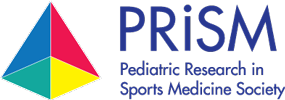Pre-course: Performance Training from the Playground to the Olympic Stage: Specialization is Not the Problem
Course Summary
This 4-hour pre-course will be presented by a multi-disciplinary team of physicians, sports scientists, performance coaches, and a teacher from a culturally diverse middle school in New York City. Representing UCLA, Children’s Hospital of Philadelphia, USA Track & Field, the United States Soccer Federation, and IMG Academy. All presenters have national or international coaching certifications. The speakers have coached from the youth to the professional level, and most have coached youth athletes through to the professional level. They coached or treated youth athletes of all abilities and socioeconomic backgrounds.
Long-Term Athlete Development (LTAD) strives to not only create elite performers but also create opportunities for all children to become confident, healthy, and active adults. The primary goals of LTAD are the early attainment of physical literacy and the commitment to being “active for life”. Physical literacy means to move with competence and confidence through a wide variety of fundamental movements (run, jump, throw, agility, balance coordination, speed, etc.) and is the cornerstone for regular participation in physical activity and excellence in sport. The earlier a child obtains physical literacy, the more likely he/she is to lead an active lifestyle in adulthood.
True athlete development depends on developmentally appropriate training of the 5 Foundational Motor Performance Abilities (MPAs) (strength, speed, endurance, coordination, and flexibility) and the Derived MPAs (made up of various combinations these Foundational MPAs).
We will review the foundational MPAs and the critical derivatives of the foundational motor performance abilities (Derived MPAs). We will dedicate time reviewing the nonlinear development of each of the motor performance abilities, including periods of acceleration and regression.
While we will review early vs late specialization sports and the latest research on “early specialization”, we hope to divert the attention away from specialization and towards developmentally appropriate training regardless of whether a participant plays 3 sports, 1 sport, or no sport at all. Appropriate development can be achieved whether an individual “specializes” or not. If one does specialize early, the athlete’s young training age dictates they should still be initially focused on general improvement through a traditional periodization model (when indicated). Specialization is not the problem. How we do specialization may be. Attention should be paid to who specializes, expectations of all involved, and who coaches them.
Course Objectives
- Review developmentally appropriate training of the 5 Foundational Motor Performance Abilities (MPAs) (strength, speed, endurance, coordination, and flexibility) and the Derived MPAs (made up of various combinations these Foundational MPAs).
- Address common training errors and how to fix them, highlight flaws in today’s talent identifications systems, contrast elite adult-based periodization training with traditional periodization meant for a developing athlete with a low training age, and review the recommended ratio of training-to-competition for a given stage of development, and the socioeconomic barriers to attaining physical literacy and optimal athletic development.
- Identify developmentally inappropriate training, preemptively identify injury risk, and risks to emotional well-being, suggest developmentally appropriate activity modification for the injured athlete (using the correct MPAs and transfer of training), and will highlight topics that help offer guidance to patients and their parents (playing up, camps, sports, training programs)
Agenda
Welcome and Introduction
Presenter: Jeremy Ng, MD CAQSM
The Motor Performance Abilities
Presenter: Christine Brooks, PhD
Important Landmarks in Growth and Maturation
Presenter: Matt Grady, MD CAQSM FAAP, FAMSSM
Socioeconomic Barriers to Physical Literacy and Athlete Development
Presenter: Vince Grady, MS
Accelerations and Regressions in Motor Performance Abilities
Presenter: Jeremy Ng, MD CAQSM
Christine Brooks, PhD
Developmentally Appropriate Training
Presenter: Andy Guard, PhD
Teaching Progressions, Corrections, and Transfer of Training
Presenter: Steffen Visk, CSCS
Training Load Monitoring for the Youth Athlete
Presenter: Andy Guard, PhD
Common pitfalls in Youth Sports Organizations and Training
Presenter: Christine Brooks, MD CAQSM
Specialization Isn't the Problem
Presenter: Jeremy Ng, MD CAQS
Course Presenters
Jeremy Ng, MD CAQSM
Christine Brooks, PhD
Matt Grady, MD CAQSM FAAP, FAMSSM
Vince Grady, MS
Andy Guard, PhD
Steffen Visk, CSCS


